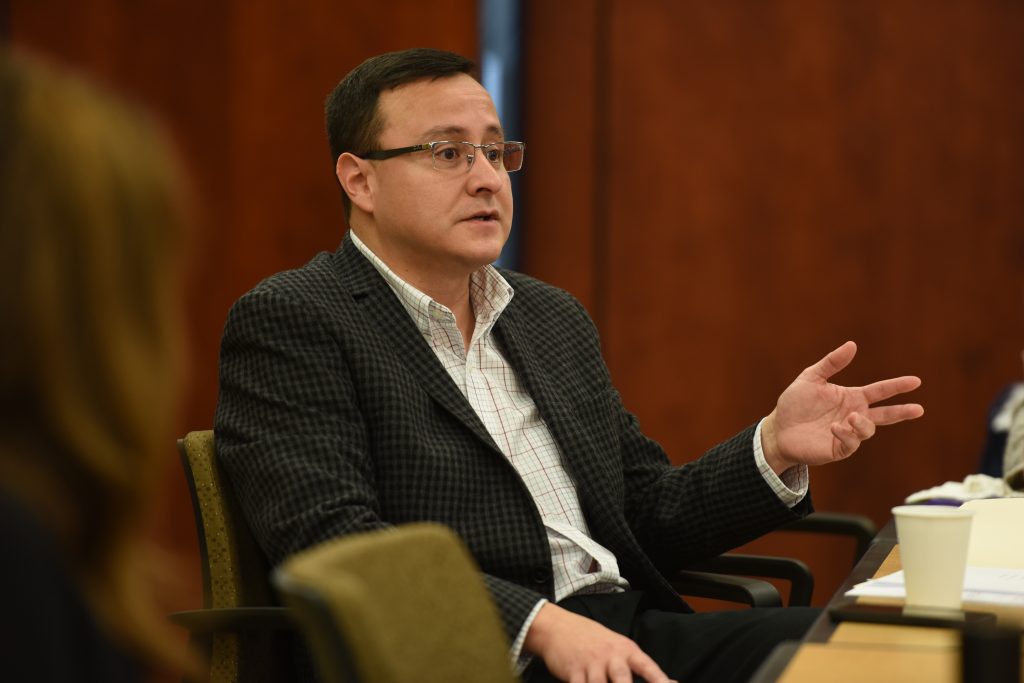
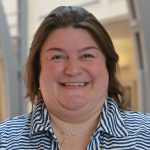
Clinical Instructor Jen Michno and colleague Dr. Jennie Weiner agree that research on administrator preparation is critically important for the field of education. Both Michno and Weiner are recent recipients of grants that support this vital research area.
Michno’s focus is to better prepare administrators to excel in Family School Community Engagement (FSCE). “This research helps practitioners in the field understand the types of strategies and practices that will garner the best outcomes for students in schools,” she says. Weiner’s research focuses on students’ experiences within the preparatory programs themselves: “Are we, instructors in preparation programs, replicating patterns that are problematic and that reify discriminatory and ineffectual practices?” she asks. “More progressive, feasible, appropriate ways of thinking about leadership need to be learned and discussed.”
Thanks to a generous grant from the Hartford Foundation for Public Giving (HFPG), Jen Michno is currently conducting research that will inform the design and implementation of a new module of the Department of Educational Leadership’s UConn Administrator Preparation Program (UCAPP) curriculum that will focus on the area of Family School Community Engagement (FSCE). The new FSCE module will ultimately become part of the curriculum for all UCAPP students, and will also be made available to several HFPG priority school districts across the state for use with currently-practicing administrators.
“There is clear evidence at the national level that there is a lack of focus on Family School Community Engagement in administrator preparation programs across the country. FSCE practices promote equity in schools and should be an integral part of every individual’s administrator preparation experience. This research addresses this issue by creating an empirically-validated FSCE curriculum module that will reach not only UCAPP students but administrators across Connecticut.” - Jen Michno
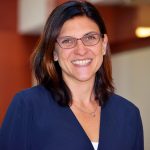
Broadly, Dr. Jennie Weiner’s research aims to redefine conceptualizations of leadership: to “move away from the ‘great (white) man’ theory, both literally and figuratively.” Her current research project investigates the experiences of black woman administrators–including their current roles and their experiences in preparatory programs–to understand if and how they have experienced microaggressions. After conducting a 10-person pilot study (forthcoming in the Journal of Research on Leadership Education), Weiner, Dr. Laura Burton, and Daron Cyr, a doctoral student in Educational Leadership, were recently awarded the Spencer Foundation Grant for Small Studies. This grant will allow them to widen the scope of the study to 25 participants, and to learn more comprehensively about each participant’s experience and career trajectory. “The ultimate goal is to create opportunities so that leadership itself is more inclusive and equitable in terms of who has access to it and who can succeed in the work,” says Weiner.
“We know from the pilot study that the participants experienced quite a few microaggressions in their administrator preparation programs. They cited being invisible in the space, never getting to talk about how their racial or gender identities might impact how people respond to them or how they engage in leadership, and a serious lack of curriculum written by anyone other than white men.” - Dr. Jennie Weiner
Whenever there were conversations about race, says Weiner, they were either centered around white privilege or students’ racial identities. “There was a focus on better understanding students from minoritized groups, which implies that the administrators are white,” she says. “And discussions about white privilege, while important, don’t really pertain to black women. There was more than one story in which a woman said she had to listen while instructors tried to convince a white man that white privilege was real. How safe or encouraged could she or anyone else outside our society’s dominant groups feel in that space?”
The impacts of both Michno’s and Weiner’s research are impressive, and neither woman’s work is without challenges. “As new material is introduced,” says Michno, “there is inevitably less time for other topics. Finding that perfect curricular balance is the biggest challenge emerging from this research.” For Weiner, the nature of her research calls for constant growth and learning. “Real change is really hard,” she says. “Every day I see the pain and the unfairness of how discrimination impacts people. I want change to happen yesterday but I also understand that this is not how things work. That said, I am committed to use my privilege to make a difference.”
But with the challenges come successes. “I get most excited when I think about the impact this will have, not only on leader development but also on the students within these school systems,” says Michno. For Weiner, it’s rewarding to do work that feels relevant: “Maybe I could help somebody feel a little less alone or a little more empowered. Getting to work toward changing things that I think are wrong–what a gift!” Thanks to the HFPG and the Spencer Foundation, Michno and Weiner are making strides toward sustainable change that supports CT's emerging leaders.
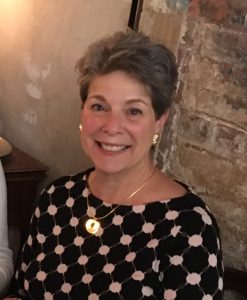
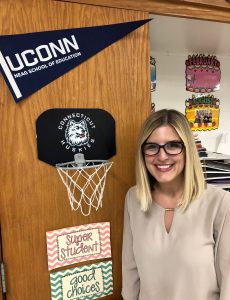
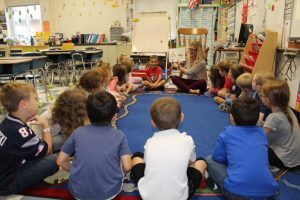
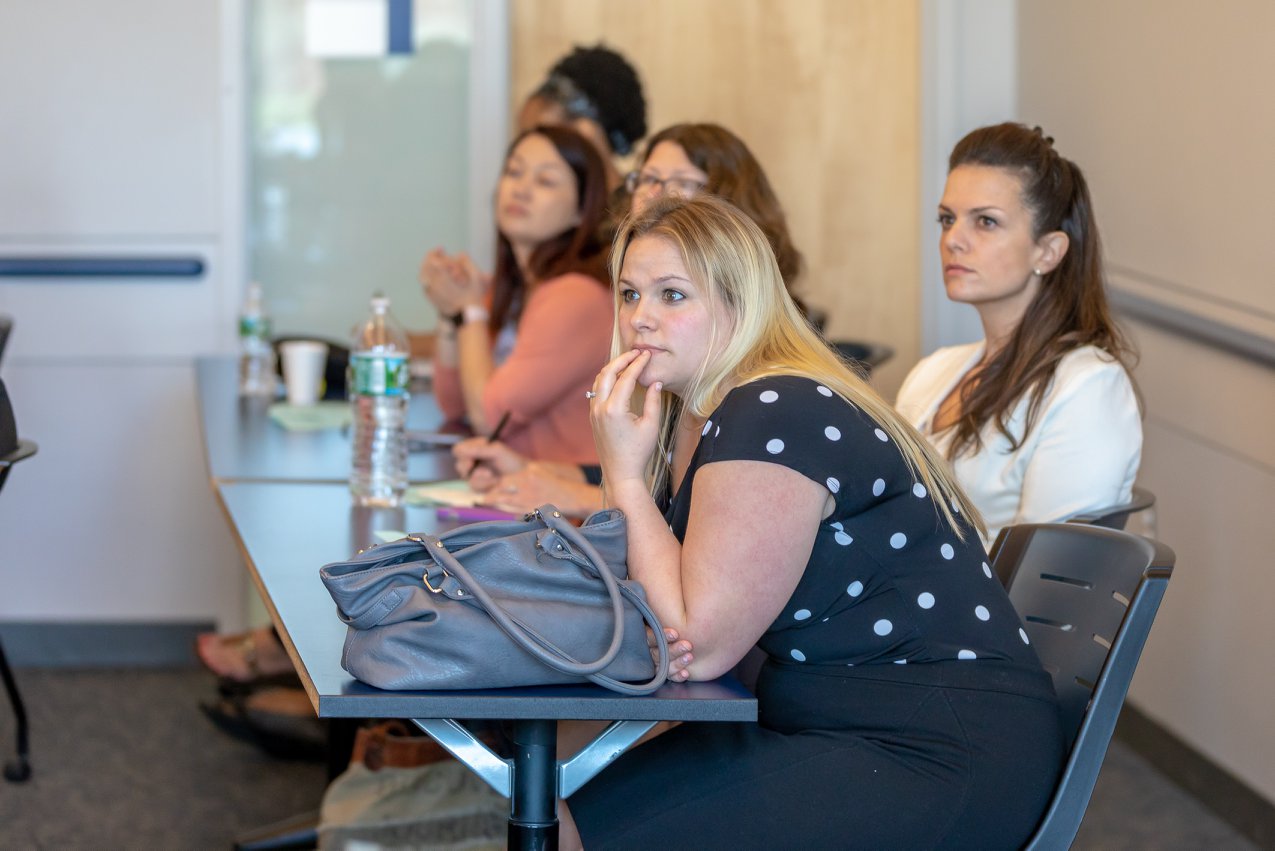 On September 25, 2018, the
On September 25, 2018, the 